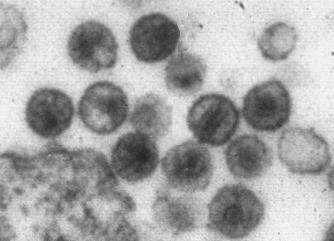10 percent of Europeans may be immune to HIV
Results of the research unveiled a sharp increase in the number of gene mutations

Researchers at the University of Liverpool in the U.K. believe that some 10% of Europeans became immune to the human immunodeficiency virus (HIV). They argue that new immunity characteristics were caused by the mutation of some genes as a result of the plague epidemics during the Middle Ages. In particular, a Delta-32 mutation affecting a cellular receptor of the gene CCR5 makes the human body protected against the HIV. The above genetic mutation is most frequently found in the residents of Scandinavian countries and Russia. 
Previous theories asserted that the genes had started to mutate in order to protect themselves against the plague and smallpox. Now the British researchers believe that the mutation was brought about by hemorrhagic fever. They base their findings on the results of a computer-aided analysis of the demographics in Europe spanning from the year 1000 to 1800. The results show a sharp increase in the number of mutations. The gene CCR5 underwent mutation because the viruses used it as a “point of entrance” into the immune system. The epidemics of hemorragic fever resulted in an increased number of genetic mutations in the human body that was trying to adjust itself to new conditions.
Meanwhile, the statistics regarding the spread of HIV in this country look quite appalling. Official data show that 305.5 thousand people in Russia are infected with the virus. “The actual number of Russians infected with HIV is at least 3 times higher than the official data,” says Vadim Pokrovsky, head of the Federal center for the AIDS prevention and control. He is certain that up to 1% of the country's adult population and more than 2% of the young aged from 15 to 30 are infected.
Subscribe to Pravda.Ru Telegram channel, Facebook, RSS!


